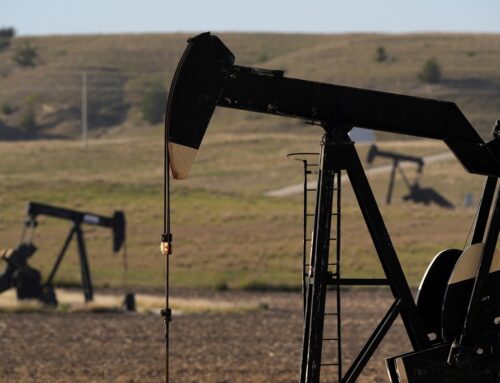How to teach climate change so 15-year-olds can act
December 23, 2024
“It’s going to get hot and everything’s going to be on fire and the oceans will rise. That’s just like the worst of the worst. How do you combat that?” asks year 11 student, Josh Dorian.
“Well, you fix it, you stop it from happening, you take preventive measures,” says Josh, who is studying VCE environmental science at Mount Lilydale Mercy College, a high school in Melbourne’s outer east. “Involving kids in that is scary, but I think it’s necessary.”
In 2025, for the first time in nearly a decade, science will be the major focus of the OECD’s Program for International Student Assessment (Pisa) – which runs every three years (give or take Covid interruptions), with its focus rotating between reading, maths and science.
This year it will measure the knowledge and ability of 15-year-old students from 92 countries and economies to act on climate change, under a new heading:Agency in the Anthropocene.
Andreas Schleicher, the OECD’s director of education, describes the refreshed science framework as a “small revolution”, addressing students’ capacity to distinguish scientific evidence from misinformation in the context of the “biggest challenge of our times – our environment”.
“This is not about a few people who are going to be engineers or scientists in their later lives. This is the foundation we want to create for every student,” he says.
Dr Goran Lazendic, who works with the Australian Council for Educational Research, is the international survey director responsible for delivering Pisa this year. He says the survey has never solely been about curriculum or content knowledge.
“The purpose of Pisa is to understand how young people are prepared to take their position and role in the global world,” he says.
That’s why the survey focuses on students approaching the end of their formal education and preparing to participate in further education or work.
Giving young people agency and choice
Agency in the Anthropocene tests students’ ability to understand and explain human interactions with Earth systems, to make informed decisions based on evaluation of different sources and to demonstrate respect for diverse perspectives as well as hope in seeking solutions, he says.
In responding to targeted questions, they will also have to show agency – an understanding of how individual and collective choices can make a difference.
Dr Peta White, an associate professor at Deakin University who led the design of Agency in the Anthropocene, says climate change education recognises the Earth’s systems are being changed through human interaction.
White, a former teacher, has decades of experience researching environmental science and climate change education.
Many young people understand the problems, she says, but don’t know what to do about them.
“We don’t teach an understanding by looking at what the most fearful climate impact is,” she says. “What’s important is to allow young people to appreciate the context that we’re in and be able to move forward”.
When a young person has agency, they can make informed decisions taking into account the complexity of Earth’s systems, diverse sources of knowledge and different perspectives, White says.
It’s about understanding their role in the ecosystem. “Not as a pinnacle up the top, but as a player in a whole range of other players in an ecosystem. They’re part of a system, which means they have to act responsibly in the system.”
At Mount Lilydale Mercy College, students tackle environmental issues and sustainability across a variety of subjects by working on real examples. The approach has been recognised for fostering responsible, community-oriented citizens.
For one project, Josh’s class investigated the effects of logging on the habitat of the endangered leadbeater’s possum, in nearby Toolangi State forest.
“We went out in the forest, we saw first-hand,” he says. The students learned that leadbeater’s possums rely on old-growth trees with hollows, and observed how few there were in the forest.
Other students constructed nesting boxes to help make up for the lack of hollow-bearing trees in nearby bushland.
‘Climate change is often too big to even think about’
In Australia, climate change in education has often been caught up in politics. In 2019, then prime minister Scott Morrison said it was a source of “needless anxiety” for children, and it was barely mentioned in the curriculum. Coverage has increased since 2022.
Amelia Pearson, at the Monash climate change communication research hub, says there have been more “climate change dot points” added to the curriculum, but mainly in subjects such as science and geography.
“Climate change impacts every area of society and our lives. So it’s really important that people who might not engage, particularly with [science, technology, engineering, maths], still have the opportunity to learn about these different challenges,” she says.
Education isn’t about persuading children to think a certain way, she says, but providing a non-political space to understand the issues and make up their own minds.
Pearson manages Climate Classrooms, an initiative that brings teachers together with climate scientists and energy experts to design lesson plans and activities. The approach provides teachers with the opportunity to ask questions about complex – and sometimes contentious – concepts such as renewable energy, nuclear, carbon offsets and net zero – “big ideas and terms that aren’t always distilled or made accessible”.
Australia is a relative latecomer when it comes to embedding climate change in education, says Russell Tytler, a professor at Deakin University.
Tytler, who specialises in science education and was involved in designing the Pisa science framework, says Pisa is highly influential in education policies around the world.
When the results from Pisa 2025 are in, every country will be scored on young people’s understanding of climate change and their role in seeking solutions, he says. There are already signs that some countries are looking to reflect the approach in their education systems.
White, together with other educators and researchers, is calling for an Australian climate change education strategy to incorporate learning across all subjects and levels.
“Climate change is often too big to even think about,” White says. It requires complex understanding and there are big emotions involved. What works in education is breaking things down and focusing on what people can do individually and collectively in a local context, she says.
“This world is going to be ours in 20, 30 years. So our awareness of the issue, and our fears need to be acknowledged,” Josh Dorian says.
It can be confronting for young people whose futures aren’t looking so lucky, he says.
“Education is one of the first steps you can take towards fixing the issue.”
Search
RECENT PRESS RELEASES
Related Post


